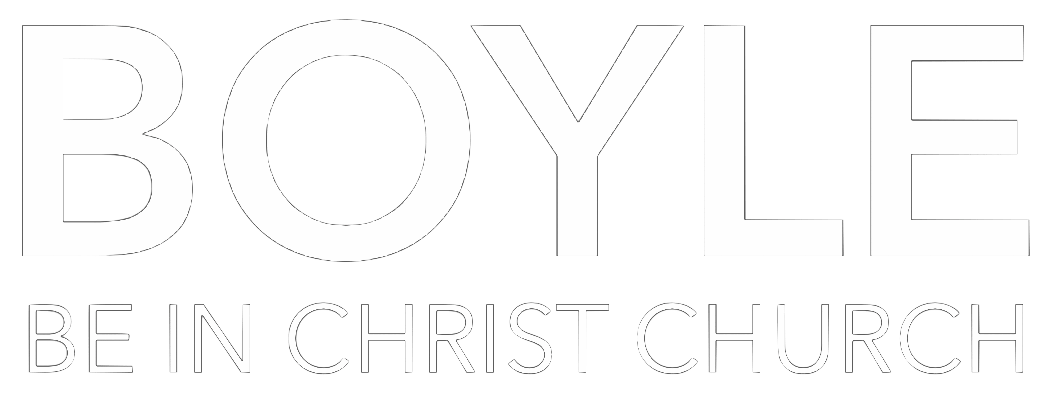The Articles of Government are approved by the Be In Christ Board of Directors. This website should be considered a representation of the official documents stored at the BIC office. A table of contents is provided with links to the articles in each of the four divisions.
TABLE OF CONTENTS
Article 1 : Congregations
Article 2 : Local Government
Article 3 : Local Congregation Intervention
Article 4 : Local Congregation Incorporation
Article 5 : Local Congregation Dissolution
Article 6 : Local Congregation Membership Withdrawal
Article 7 : Church Property and Capital Projects
Article 10 : Clergy
Article 11 : Ministerial Credentials
Article 12 : Credentialed Status
Article 13 : Credentialing Process
Article 14 : The Board of Directors
Article 15 : The Executive Director
Article 16 : International Relations
Local Church Polity
ARTICLE 1 : CONGREGATIONS
The Be In Christ Church of Canada is a family of congregations with shared theology, values and governance structure. The structure of the denomination recognizes three types of local congregations with defined levels of responsibility as defined in the policy governance documents.
Section A : Local Congregation
A local congregation is the local church expression of the denominational church sharing the common purpose of BIC to be “a growing faith community – following Jesus, sharing his message, and extending his peace around the world” and operates in compliance with all BIC governance policy. Each local congregation carries the responsibility to develop a missional and contextual presence in its local community.
Section B : Church Plant
A church plant is a new congregational expression that is sponsored either by the denomination, a local congregation, or other ministry affiliated with the denomination. A church plant must receive oversight, financial support, and administrative resourcing from at least one of these sponsoring groups. A church plant will be defined as a local congregation once it achieves its own charitable status, establishes its own governing board, and becomes either incorporated or is accepted as an unincorporated member.
Section C : Affiliate Congregation
Any congregation interested in membership may consider affiliation as a first step towards full local congregation status. Upon approval by the team leader, the executive director and the governing board of the local congregation affiliate status can be obtained if a congregation meets the requirements as listed below.
- Alignment with the Articles of Faith and Doctrine.
- Compliance to expectations for attendance at pastoral and congregational events.
- Support for the national and global ministries through giving to denominational programs.
- Signee to a memorandum of understanding until full membership is obtained.
Affiliate congregations are not full members and while able to attend the annual general meeting, they may not formally send delegates or vote at the annual general meeting.
ARTICLE 2 : LOCAL GOVERNMENT
Section A : Organization
Each congregation must be meet a basic level of compliance as identified in the principles below. Any variance to this basic level of compliance must be approved by the executive director.
- A local congregation has the responsibility to conduct its affairs in compliance with the Handbook on Faith and Life.
- A local congregation may have its own governing document as long as those documents do not contravene the denominational governance documents and those documents have been approved by the board of directors.
- A local congregation is to be either an incorporated entity or an unincorporated association.
- The affairs of a local congregation are governed by its governing board, its own governing documents which must be in compliance with the denominational governance documents.
Section B : Membership
As required by Canadian law, each congregation will have a membership role and process for membership enrolment. Requirements for local congregation membership must each of the following commitments unless an exception has been granted in writing by the executive director.
- A personal decision to follow Jesus Christ as their Saviour and Lord.
- Having experienced adult believer’s baptism.
- A commitment to the denominational Articles of Faith and Doctrine.
Section C : Governing Board
The governing board is to administer the affairs of the local congregation in accordance with its local governing documents, the requirements of Canada Revenue Agency and the minimum specifications as listed below.
- The governing board must have a minimum of five members.
- All members of the governing board must be members of the local church.
- It is expected that a minimum of its membership of the governing board be at least 25% of each gender.
- Board members are limited to four consecutive two-year terms and may not serve for at least one year before being eligible for further service on the board.
- The governing board will organize annually with the senior pastor overseeing this task.
- The chair of the governing board shall not be a person that is employed by the local church.
- The senior pastor of the local congregation is to fully participate in all meetings of the board in a non-voting capacity.
- The governing board will preferably not have two or more members from the same immediate family. Exceptions to this may be made only with the approval of the team leader.
Section D : Governing Board Nominations
The annual nomination process for the governing board is listed below. Any variance to the process of nominations for the governing board must be approved by the executive director.
- The governing board will establish a nominating committee of at least five persons made up of the governing board chair and no more than two other current members from the governing board. The remaining persons serving on the nominating committee shall be appointed by the governing board from the congregation at large. The senior pastor shall serve as an ex-officio advisory member of the nominating committee. The governing board chairperson shall serve also as the chairperson of the nominating committee.
- The governing board will indicate to the nominating committee the type of candidates they are looking to serve on the board in terms of skill, gender, age, diversity, etc.
- The nominating committee is encouraged to involve the congregation and invite the submission of names of people who have the qualities desired for the role.
- The governing board will bring one name for each open spot on the governing board. To avoid division and popularity contests, an election where two people run for the same office or position on the governing board is not to be held.
Section E : Governance Standards
- Variances: If a church wishes to vary its operational and governing patterns from those outlined in the Articles of Government, they will need to have the written approval of the executive director.
- Budgeting: Each local congregation will have a procedure for the preparation, adoption and control of the annual budget.
- Accounting Records: Each local congregation will maintain records of the general ledger and supporting journals, detailed records of pledges, investments, loans, yearly budget reports and annual financial reports including a record of annual audit or review, with records or reports sent to the denominational office annually.
- Administrative Records: Each local congregation will have securely maintained records which will include governing board minutes, annual general meeting minutes, personnel files, employment records, governing and/or legal documents, and all financial or other documents according to federal or provincial government requirements.
- Policies and Procedures: Each congregation will create, implement and publish any necessary policies and procedures such as job descriptions, staff acquisition procedures, staff evaluations, risk management, etc. These must be in compliance with the BIC governance documents.
- Property and Facilities: All facilities, including any property stewarded on behalf of BIC, will be well maintained and in accordance with local building and fire codes. Adequate risk and liability insurance will be secured and reviewed annually and copies of insurance policies will be sent to the BIC office. Local church insurance policies will add BIC as an additional named insured on property coverage as well as on liability coverage. Adequate security for the public will be provided.
- Fundraising: Fundraising efforts for every congregation will demonstrate Biblical values, ethical standards and donor responsibility. All initiatives should engender good public relations and confidence in the local church and denomination.
- Reporting: The local congregation will provide to the denominational office all reports as requested. It is also expected that a local congregation will satisfy all legal reporting obligations.
- Rental Policies: Each local congregation will provide a copy of its rental policies to the denominational office. Rental policies need to include the following: a) proof of insurance by the rental group naming both the local congregation and the BIC as additional insured; b) limits on the use of the facility; c) release of liability expectations.
Section F : Annual Meetings
There will be an annual meeting of the official members of the local congregation where members are expected to vote on legal, financial, and other matters pertaining to the healthy functioning of the local congregation as presented by the governing board. Supporters of the congregation may be invited to attend and participate fully in the meeting with the exception of voting on motions.
- No congregational annual meeting may be called or held without the consent of the governing board of the particular local congregation. A public notice must be given in at least one regularly scheduled service with a minimum of seventy-two hours prior notice before the business meeting can be held.
- All items for any congregational business meeting will be presented to the governing board, which will be responsible to prepare the agenda for release in a regular service prior to the particular congregational meeting. Quorum for a duly called congregational business meeting is twenty percent of the current membership of the congregation. Only members sixteen years of age or older are allowed to vote at congregational business meetings.
- Should a matter of business be presented to the governing board for the congregational business meeting and the governing board declines to place the item on the agenda, the governing board must give written rationale for the decision to the individual(s) who made the request. The person who presented the request, if unwilling to accept the decision of the governing board, may appeal to the appropriate team leader of BIC for resolution of the issue. If still unsatisfied, the individual may appeal the decision to the BIC board of directors through the office of the executive director. All correspondence involved in the decision by the governing board of the local congregation will be submitted to the executive director. The decision made in the matter by the board of directors will be final and is unappealable.
- Delegates should be nominated and affirmed annually by the local congregation to represent the member congregation at the annual general meeting as directed by General Operating Bylaw 1. Section 2.04.
- All group activities carried on within a local congregation will be subject to the approval of the pastor and the governing board and will be correlated with the total program of the church.
- Same-sex unions and/or blessings may not be performed in denominationally owned facilities.
Section G : Ordinances and Practices
Baptism by water is a public sign that a person has repented of sin, received forgiveness, died with Christ, and been raised to new life through the power of the Holy Spirit. Baptism is also a public declaration of a believer’s intent to follow Jesus fully with their life. Historically, BIC congregations practiced forward trine immersion but other modes are normative and acceptable.
The church observes the Lord’s Supper as a remembrance of his atoning death and to celebrate forgiveness, new life, and the fellowship and unity of all believers. The intervals at which the Lord’s Supper is observed vary from congregation to congregation.
In times past, the foot washing service was an important event in the life of the church. Although uncommon in most churches today, the foot washing service is sometimes practised to demonstrate love, humility and service to one another.
Child dedication is an opportunity for parents to express their desire to nurture their children in the knowledge, training and the way of the Lord. It is an opportunity for the church to affirm the significance of children in the life of the congregation and to commit to pray for the parents in the nurturing of the children’s faith.
The church also affirms and practices the laying on of hands, praying for and anointing with oil of the sick for divine healing.
Section H : Children and Youth Ministry
Congregations that engage in children’s and youth ministries will establish policies and procedures that provide for the care and protection of children and youth participating in these ministries. A number of helpful resources are available to help local congregations create a proper child protection policy. Congregations may from time to time be asked to produce their current child and youth protection policies and procedure guidelines to ensure compliance.
Section I : Vulnerable People
Congregations are expected to take appropriate measures to ensure that all vulnerable persons (a person dependent on others or any person at greater risk than the general population of being harmed by a person or people who are in a position of trust) are protected and appropriate measures have been established to ensure their protection. This would include measures such as vulnerable sector background checks for volunteers who would come into contact with the vulnerable person.
Section J : Conflict and Discipline
The church is called to experience unity and harmony in the body of Christ. A breadth of human experience and perspective is evident as believers share in the life of a local church and the broader denomination. Conflict is a normal element in all human relationships including church life. The Scriptures give us guidelines for helping members in conflict with the body toward reconciliation and peace. In the event of seemingly unresolvable conflict, the team leader will be engaged and work for an amenable resolution.
ARTICLE 3 : LOCAL CONGREGATION INTERVENTION
In accordance with our governance documents, local congregations function under the oversight of denominational leadership and, therefore, denominational leaders are welcomed partners in the healthy functioning of each local congregation. As ministry partners, denominational leaders are welcome to meet with a local congregation’s governing board, pastoral leaders, and the congregation at large, in order to resource, encourage and counsel pastors, governing boards and congregations as deemed necessary by the denomination.
In instances of significant congregational distress that, in the judgement of the executive director, compromise the ability of the pastor and/or local congregation’s governing board to serve the congregation, the executive director may designate a congregation as in “distress” and suspend the normal governance of the church for a time. The “congregation in distress” designation must be approved by the board of directors of the Be In Christ. The executive director, in cases of congregational distress, may also enact a range of measures to help restore peace and health to the congregation.
ARTICLE 4 : LOCAL CONGREGATION INCORPORATION
All congregations and entities of BIC may incorporate under the applicable laws of the federal government of Canada and/or of the province in which they operate. Incorporation does not necessitate the transfer of property from BIC to the local church but is a requirement for any potential transfer of property from BIC to the local church.
The primary incorporation document of a local church will include the following provision: A statement that the corporation and the church property are subject to the BIC articles of government and that the local church governing document may be modified (other than registering a change of address) only with the approval of the board of directors.
Obtaining the guidance of the executive director and legal counsel prior to incorporation is required. Congregational governing documents must receive approval of the board of directors prior to being enacted.
The corporation and all church property including real property are subject to the provisions of the Articles of Government. This governing document may be amended (other than registering a change of address) only with the approval of two-thirds of the total membership of the board of directors.
The sample language below may be included in the documents.
- A clause providing that, upon dissolution of the local corporation, the assets of the dissolving corporation will be distributed to BIC if the assets are local church property.
- Any other provisions required or recommended for a non-profit, tax-exempt organization which do not conflict with the articles of government.
ARTICLE 5 : LOCAL CONGREGATION DISSOLUTION
There are times when local church leadership, working in partnership with the denominational leadership, will determine that the best course of action for a congregation is dissolution. A congregation considering dissolution must pursue the following steps as listed below.
- Upon receiving counsel and direction from denominational leadership, the governing board will recommend dissolution.
- Notify the executive director of this recommendation of dissolution at least 30 days prior to any congregational meeting in which this motion to dissolve will be presented. Any motion to dissolve before such notice is out of order.
- Provide at least ten days written notice and two Sunday announcements of a congregational meeting to all members of the congregation entitled to vote. The written notice and announcement will state the time, place and purpose of the meeting.
- Grant a vote to all official members of the local congregation, present at the duly called meeting, who are 16 years of age or older and who have held membership for at least one year prior to the meeting.
- If a motion to dissolve is carried by a simple majority (50% + 1) vote of those members present, the denomination will immediately exercise organizational responsibility and control.
- If a motion to dissolve does not carry, the denomination will immediately appoint a transition committee who will work under the direction of the team leader. The transition committee will be responsible to establish practises and guidelines leading to health and sustainable ministry.
- If health and sustainable ministry is not realized within one year, the church will be considered in distress and Article 3 of the articles of government will be instituted.
- In the event of dissolution, all assets of the local church after payment of its liabilities, will be distributed to the denomination.
ARTICLE 6 : LOCAL CONGREGATION MEMBERSHIP WITHDRAWAL
It is desirable that people can, in good faith, walk together in the common cause of the gospel. However, history has demonstrated that in rare circumstances the leadership of a local congregation deems that membership withdrawal of a local congregation is something they wish to pursue. Such a process should seek to follow the guidelines as listed below.
- Establish good faith attempts at reconciliation and understanding.
- Ensure, to the satisfaction of the BIC, that a congregational vote to withdraw is truly representative of the stakeholders in the local congregation.
- Clarify and discharge all outstanding obligations to BIC.
- Seek to maintain a relationship of good grace that neither brings reproach upon the name of Christ nor hinders the fulfilment of the mission of BIC or the local congregation.
A congregation may withdraw from membership in the denomination if the following criteria have been met.
- A local congregation governing board intending to bring a motion to withdraw before the local congregational membership must give the executive director written notice at least 90 days before the meeting at which such a motion will be made.
- At least 14 days advance written notice of such a meeting will be given to all members of the congregation entitled to vote. In addition to written notice, announcement will be made on two Sundays immediately prior to the congregational meeting at which the question of withdrawal will be considered. The announcement will state the time, place and purpose of the meeting.
- Voting for the purpose of withdrawal will be restricted to members of the local church who are at least 16 of age and who have held membership for at least two years prior to the meeting.
- A representative of the BIC will be present and permitted to participate in the meeting in a non-voting capacity.
- A 75% majority support vote of the membership in favour of the motion to withdraw is required to continue the process of withdrawal.
- Notification of the result of the vote will be delivered to the executive director.
- The executive director will assign persons to work with the local church to negotiate the terms of withdrawal (if the vote did receive the 75% majority) or to seek resolution of the issues that led to the motion to withdraw (if the vote did not receive the 75% majority).
- The terms of withdrawal must be approved by the board of directors at a regular meeting and by the local congregation’s governing board.
- The motion to withdraw must be confirmed by the local congregation by a 75% majority vote in a duly called meeting following publication of the agreed upon terms of withdrawal with the executive director present.
- All outstanding financial obligations will be settled within 60 days.
- All property and assets owned by the denomination are retained by the denomination.
A congregation who is incorporated and directly owns property may withdraw from membership in the denomination if the following criteria have been met.
- A local church governing board intending to bring a motion to withdraw before the local congregational membership must give the executive director written notice at least 90 days before the meeting at which such a motion will be made.
- At least 60 days advance written notice of such a meeting will be given to all members of the congregation entitled to vote. In addition to written notice, announcement will be made on three Sundays immediately prior to the congregational meeting at which the question of withdrawal will be considered. The announcement will state the time, place and purpose of the meeting.
- Voting for the purpose of withdrawal will be restricted to members of the local church who are at least 16 years of age and who have held membership for at least two years prior to the meeting.
- A representative of BIC leadership will be present and permitted to participate in the meeting in a non-voting capacity.
- A 75% majority support vote of the membership in favour of the motion to withdraw is required to continue the process of withdrawal.
- Notification of the result of the vote will be delivered to the executive director.
- The executive director will assign persons to work with the local church to negotiate the terms of withdrawal (if the vote did receive the 75% majority) or to seek resolution of the issues that led to the motion to withdraw (if the vote did not receive the 75% majority).
- The terms of withdrawal must be approved by the board of directors at a regular meeting and by the local church board of directors; no withdrawal may occur until this meeting has occurred.
- The motion to withdraw must be confirmed by the local congregation by a 75% majority vote in a duly called meeting following publication of the agreed upon terms of withdrawal; the executive director will be present at this meeting and permitted to participate in the meeting in a non-voting capacity.
- Any outstanding financial obligations will be settled within 60 days.
- All property and assets owned by denomination are retained by the denomination.
ARTICLE 7 : CHURCH PROPERTY AND CAPITAL PROJECTS
Section A : Title
- All property of a local congregation will be held in the name of BIC. All property will be held by the local congregation in trust only.
- Where an incorporated local congregation owns property, it will beneficially own and hold title to all real and personal property over which it exercises direct control and governance.
Section B : Transfer of Property from BIC to a Local Congregation
- Property may be transferred to the local congregation upon satisfactory incorporation or other organizational provision (such as trustees) in accordance with the laws of the province in which it is located. The eligibility of a congregation to receive the transfer of such property from BIC to the local congregation will be determined on the basis of a successful application and the meeting of all published criteria for local congregational ownership of property.
- A congregation wishing to own property locally should contact the executive director for the necessary paperwork and procedures.
- No property owned by a local church will be charged with or encumbered by the debts and liabilities of the denomination.
Section C : Discontinuance of a Local Church with Property
A member congregation of BIC will have in its incorporation and/or similar governance documents or in its bylaw, a provision such as the following: “In the event of dissolution or conclusion of the (name), all of its remaining assets after payment of its liabilities will be distributed to BIC or its successor.”
Section D : Capital Projects of Unincorporated or Incorporated Congregations
- An unincorporated congregation desiring to complete a capital project with an estimated value greater than forty percent of their previous year annual receipts needs to seek the approval of the executive director. Prior to beginning the project, the director of operations should be notified and asked for the required paperwork and conditions of approval.
- Any local congregation, incorporated or unincorporated, seeking a loan to facilitate a capital project with a loan value greater than 75% of their previous year annual receipts must seek the approval of the board of directors. Prior to beginning the project, the director of operations should be notified and asked for the required paperwork and conditions of approval.
PASTORS AND STAFF
ARTICLE 8 : SENIOR PASTORS
Section A : The Pastor
The senior pastor serving in a congregation is considered the primary spiritual overseer of the local congregation, and is responsible for directing its life and ministries. The senior pastor will carry out duties as agreed upon by the governing board and in compliance with the Handbook on Faith and Life.
Section B : Hiring of the Senior Pastor
The appropriate team leader, as designated by the executive director, working in partnership with the governing board of a member congregation, will oversee the search and hiring process of a senior pastor.
The hiring of a senior pastor is not considered final until the candidate has been approved by the team leader and the executive director and provisional credentials have been granted.
An initial term of service for a pastor will be set by the team leader and the governing board of the congregation.
Section C : Accountability
The senior pastor is accountable to the governing board through its chair for the daily work of the congregation. The pastor is accountable to the denominational team leader on issues of compliance with the handbook on faith and life and unresolved congregational conflict.
In church plants that do not yet have a governing board, the senior pastor is accountable in full to their denominational team leader.
Section D : Credentials
The senior pastor serving a congregation, church plant, or affiliated congregation must be credentialed prior to the commencement of service.
Section E : Review of the Senior Pastor
In local congregations, assigned credentialed senior pastors are called by the pastoral committee which is composed of the governing board with the denominational team leader serving as chairperson. Assigned senior pastors serve in pastoral ministry as both employees of the local church and the denomination. The BIC does not use a congregational voting system for calling or reviewing pastors.
The BIC believes reviews are important to the growth of the pastor in their role while also affording the church leadership opportunity to address any concerns related to performance. Accordingly, the senior pastor will be subject to regular schedule reviews as explained in detail at the pastoral way.
Section F : Accusations Involving Credential Holders
Accusations in matters involving a pastor’s ability to hold pastoral office must be made to the executive director in writing and properly signed by one who is willing to appear in person and give testimony concerning the accusations. Accusations will be dealt with according to provisions in the discipline and reconciliation manual.
Depending on the nature of the accusation against the pastor, the executive director may suspend the pastor from further service immediately, pending the outcome of the appropriate investigation. The executive director may also remove a pastor from a congregation and terminate their employment if deemed necessary. This action would be taken in dialogue with the chairperson of the board of directors and the governing board chairperson.
Section G : Membership
Upon commencement of their service to a congregation, pastors will automatically become a member of that local congregation.
Section H : Duties of a Senior Pastor
- To ensure the spiritual health of the local congregation. This includes establishing a clear discipleship strategy for the church, engaging people in worship, encouraging spiritual growth and connecting people with service and volunteer opportunities that fulfil their God given mission to make disciples.
- To clarify and champion the vision, mission and values of the local church. To ensure congregational movement in a unified direction towards the fulfilment of local vision, mission and values.
- To ensure that all worship experiences are executed with excellence considering the location of the church. Each worship experience should call people to follow Christ fully, engage both the heart and mind and encourage people towards fulfilment of their God given mission to make disciples.
- To ensure the local church has an intentional plan to invest in the community in which it resides.
- When a local church has multiple staff, the senior pastor will lead, evaluate and mentor staff in their area of service and ministry.
- To provide regular reports to the local governing board, as well as those required by the denomination.
- To fully support, promote, and participate in the broader ministries of the church as requested by the denomination.
- To be a life-long learner, pursuing personal and professional development by participating in the programs offered by the denomination, as well as other agencies.
It is recognized that individual churches will have different expectations of pastors and the denomination encourages well written and clear role descriptions be developed to avoid unnecessary conflict.
Section I : Employment Conclusion
We desire that pastors experience long-term and successful ministry in the setting where they serve. However, we recognize that on occasion a pastor may not be experiencing success in their role with a congregation. Congregations in dialogue with the team leader and the executive director may elect to bring to conclusion the employment of a credentialed pastor with or without cause. All provincial and federal guidelines regarding notice and severance will be followed and notice of termination of employment will be provided in writing.
Those serving in senior pastoral roles may not be dismissed without the prior approval of the team leader and the executive director.
ARTICLE 9 : STAFF PASTORS
Section A : Staff Pastors
When considering the hiring of additional staff, churches are encouraged to consider a number of issues as listed below.
- Are the resources in place to provide a secure means of income for the staff person for the full length of the contract?
- Is it necessary to hire a credentialed pastor or could the needs be accomplished through a director or coordinator?
- Is there clear expectations for the role in which the person is being hired for with clearly defined outcomes?
- Will the expense of this staff addition stress the budget in such a way that it has a negative impact on other areas of church ministry? For example, is the church currently in the practise of giving 10% of its yearly budget to the shared ministry of BIC?
Section B : Hiring of Staff for Local Congregation
- The senior pastor, in relationship with the governing board, will oversee the process of hiring.
- All offers of employment for pastoral positions must be contingent upon the successful granting of provisional ministry credentials. Senior pastors are required to work collaboratively with their team leader.
- An offer to hire agreement outlining the employment terms including termination provisions must be completed.
- All staff report directly to the senior pastor.
Section C : Accusations Involving Credentialed Staff
Accusations in matters involving a pastor’s right to hold office must be made to the executive director by one who is willing to appear in person and provide evidence concerning the accusation. Accusations of merit will follow the process outlined in the discipline and reconciliation manual.
The executive director may immediately suspend the pastor from further service pending the outcome of the investigation.
Section D : Accusations Involving Non-Credentialed Staff
Accusations in matters involving a staff person’s ability to hold a position will be handled by the senior pastor in relationship with the appropriate team leader and governing board chairperson.
Section E : Discipline
All staff pastors and ministry staff must agree to accountability as expressed in the discipline and reconciliation manual.
Section F : Membership
Staff pastors, if credentialed, will automatically become a member of the local congregation being served upon commencement of their service.
Section G : Removal
In case of serious disagreement between the senior pastor and a staff pastor, the matter will be submitted to the chairperson of the governing board. If satisfaction is not attained by both parties, the team leader will make a decision on the matter. A final appeal may be made to the executive director.
CLERGY CREDENTIALING
ARTICLE 10 : CLERGY
Section A : The Office of the Credentialed Pastor
Persons holding valid credentials may serve in a variety of roles including as senior pastor of a local church, associate or staff pastor, institutional chaplain or in any role approved for credentials by the appropriate team leader and the credentialing overseer. Any person holding credentials agrees to conduct themselves in accordance with the handbook on faith and life and the vision described in the pastoral way.
Section B : Qualifications
Pastors are persons called by God to serve the Church of Jesus Christ in an official capacity. Scripture indicates in 1 Timothy 3:1-7 and Titus 1:7-16 that there are standards against which Christian leaders are measured and held accountable. Pastors must be committed followers of Jesus Christ and clearly indicate a sense of God’s leading to serve in vocational ministry. The scriptural directives relating to ministry leaders speak to the importance of exemplary godly living. As a testimony to the importance of the home, attention must be given to the scriptural qualifications of wholesome marital and family relationships which include a commitment to the sanctity of marriage. They should be able to teach and lead others. They must affirm a belief in the BIC Articles of Faith and Doctrine, its vision and mission, and support its leadership.
To ensure a person’s qualifications and credibility for service, the denomination engages in a formal credentialing process for those called to serve as pastors and chaplains.
The credentialing process for vocational pastors affirms the following principles.
- The biblical pattern of the gifting, character and calling of persons to specific ministry roles within the community of faith in order for its strengthening and the functioning of its mission (Exodus 3, Psalm 78:70-72; Isaiah 6; Acts 13:1-3; Ephesians 4:11-19, 1 Corinthians 1:11; 1 Timothy 3:1-7; 2 Timothy 1:11; Titus 1:5-9) within an acknowledgement of the “priesthood of all believers” (1 Peter 2:4-10).
- The current and continued partnership role of the community of faith in discerning and affirming the calling, gifting, character and competency of persons to places of service within the church (Acts 13:1-3; Titus 1:5-9; 1 Timothy 3:1-7).
- The necessity of equipping and training for roles of service (Psalm 78:70-72; Ephesians 4:11, 2 Timothy 1:6, 2:15; 3:14-4:8).
- The need for alignment with the core values, the theological statements, and the vision and mission of BIC in order for healthy and effective service (1 Timothy 3:1-7).
- The value of being set apart and commissioned for service in a manner that affirms the person and assures the community of faith (Psalm 78:70-72; Acts 6:1-7, Acts 9:15, Acts 13:1-3; 1 Thessalonians 2:10-12: 1 Timothy 5:17, 2 Timothy 1:11) of the individuals preparation and suitability for ministry leadership.
Section C : Privileges and Responsibilities
- It will be the duty of those who hold credentials to proclaim the gospel of Jesus Christ, prayerfully strive to lead persons to the Saviour and into a life of full commitment to Jesus as empowered by the Holy Spirit, and earnestly endeavour to build up the body of Christ.
- It will be the duty of those holding credentials to live a life that is in accordance with the articles of faith and doctrine.
- Those holding credentials are eligible to perform official duties within the limits of their credentials.
- Those holding credentials are able to serve within the office of pastor, associate pastor or other ministerial role within a local church or in an ecclesiastical role within the denomination or other approved ministry placement such as chaplaincy.
- It is the privilege of the clergy to officiate at the marriage of persons who, after adequate instruction and counsel, can affirm the principles of Christian marriage, including a lifelong commitment to the marriage relationship. Clergy are not obligated to officiate at marriages which violate their consciences or otherwise are not in harmony with their understanding of scriptural principles. When there is a question regarding the clergy’s conducting a marriage, it is advisable for the clergy to consult with BIC leadership.
Section D : Credentialing Agreement
Maintaining credentials requires compliance with the Handbook on Faith and Life, the Discipline and Reconciliation Manual and desire to live out the vision as stated in the PastoralWay.com.
ARTICLE 11 : MINISTERIAL CREDENTIALS
There are two levels of credentialing with the Be In Christ Church of Canada. The entry point for all new pastors is the ‘Licensed’ level. Once all requirements have been completed, the second level of credentialing is ‘Ordained.’
To obtain credentials, a pastor must meet the criteria as outlined in PastoralWay.com. The credentialing overseer will manage the process and ensure an equitable and transparent process for all candidates.
ARTICLE 12 : CREDENTIALED STATUS
Whether ordained or licensed, all credentialed persons will have one of four statuses: active, suspended, special and emeritus. A description of each status is listed below.
- Active status is an individual serving as a pastor in a local congregation.
- Suspended status is an individual who credentials are under review for ethical, theological or behavioural reasons. Restoration of credentials will be determined on a case by case basis.
- Special status is an individual serving in a pastoral role but not within the local congregation (e.g., hospital care, elder care, chaplaincy).
- Emeritus status is an individual who has held credentials with the denomination for twenty-five years or more and is no longer serving in a pastoral role.
ARTICLE 13 : CREDENTIALING PROCESS
The process of receiving credentials will be overseen by the credentialing overseer. The duties of the credentialing overseer are listed below.
- The credentialing overseer will approve all applications for credentialing in the denomination.
- The credentialing overseer will provide a transparent and equitable process for applicants.
- The credentialing overseer will provide and maintain the standards and requirements for ministerial licensing and ordination and continuation therein.
- The credentialing overseer will ensure that all requirements for credentials have been completed.
EXECUTIVE LEADERSHIP
ARTICLE 14 : THE BOARD OF DIRECTORS
The board of directors serves as the policy-making board between meetings of the annual general meeting and within the will of the annual general meeting.
Section A : Qualifications to Serve on the Board of Directors
- One whose life gives evidence of spiritual maturity and desire to live both peacefully with others.
- One who is a committed and active member of their local congregation.
- One who has demonstrated leadership gifts in other non-profit organizations.
- One who has demonstrated a commitment to the mission, ministry and work of the BIC.
- One who meets the statutory requirements as described in the General Operating Bylaw 1.
Section B : Selection of Personnel to serve on the Board of Directors
The board of directors serves as the nominating committee for the denomination. When nominating candidates for recommendation to the annual general meeting, the nominating committee will take effort to ensure the presence of diversity on the board by means of gender, race, region and expression.
Credentialed persons will not serve on the board of directors. Exceptions to this may be made with the consent of the board of directors and by the successful approval of the nominee by the annual general meeting. The nominee’s status as a credential holder should be noted in the nomination process.
Section C : Duties of the Board of Directors
- To study, coordinate and promote the total program of the church.
- To review the program and overall functioning of the church and to bring recommendations to the annual general meeting which will seek to increase the effectiveness of the church in achieving missional success.
- To receive and approve recommendations from the executive director.
- To carry responsibility for the business of the church in between annual general meetings.
- To approve budgets and ministry plans and forward the necessary recommendations to the annual general meeting.
- To hire the executive director and provide for the appropriate review process on a biannual basis.
- Nominate or appoint persons to serve on teams, committees or boards of the denomination and its related entities.
- To receive reports and address recommendations from teams, committees or boards of the denomination and its related entities.
- The board may establish from time to time any team it deems necessary and helpful to the work of the church and designate the terms by which it functions.
- To serve as the legal membership body for related institutions as required by the governance documents.
ARTICLE 15 : THE EXECUTIVE DIRECTOR
Section A : Executive Director Qualifications
In addition to the qualification requirements set out in general operating bylaw No. 1, the following qualifications are to be fulfilled by any prospective executive director as listed below.
- Spiritual maturity to lead the growth of a healthy church movement.
- A graduate degree in theology or divinity preferred, with openness to pursue further education.
- An ordained Be in Christ minister, with experience in pastoral ministry.
- Ability to develop and cast vision in alignment with the wider BIC Church.
- Possess strong relational and communication skills.
- Strategic, organizational and leadership skills.
- A demonstrated history of working with, overseeing and developing leaders.
- Healthy problem-solving skills within a team environment.
- Able to manage complex conflict situations effectively and with grace.
- Proven experience in leading a growing organization.
- Able to live out the BIC values.
- Committed to the Be In Christ Church of Canada.
Section B : Executive Director Duties
In addition to the duties set out in General Operating Bylaw No. 1, the executive director shall have the duties as listed below.
- Partnering with the board of directors, will develop vision, mission and strategic direction in alignment with the overall vision of the church.
- Assemble and oversee a team of senior leaders and other national office staff, facilitating effective management, evaluation and development of leaders and staff.
- Ensure that there is an effective credentialing system in place and to manage and oversee the credentialing process.
- Represent the BIC at appropriate national and ecumenical organizations.
- Facilitate fundraising and promotion of our ministries for the accomplishment of common ministry and mission as expressed through BIC.
- Continuously investigate new leading edge organizations and networks to seek ways to improve and innovate in our purpose, strategy and mission.
- Ensure that all legal and regulatory obligations for the organization are met and actions of the organization and employees meet all applicable laws.
- Be generally available for teaching, resourcing and engagement as necessary and requested
- Be the spokesperson on behalf of the BIC.
- To guide and ensure an effective and coordinated global ministry.
- To collaboratively work with local churches in the discipline and restoration processes as required.
- Working with the staff team to provide overall administrative leadership to BIC, including management of the national budget and oversight of ministries of BIC, ensure the development and implementation of an overall vision and mission for BIC, ensure that an appropriate system for pastoral development, selection, placement and care is in place for all expressions, ensure that a plan for expansion of local congregations and ministry is in place and successfully advancing in all expressions of BIC, and foster an effective and positive environment for the accomplishment of mission, vision and goals.
ARTICLE 16 : INTERNATIONAL RELATIONS
Internationally, the BIC cooperates with similar national bodies of Brethren in Christ churches in other countries to foster fellowship and to engage in joint ministries in the pursuit of its objectives. In particular, the denomination seeks to enhance and forward the work of the International Brethren in Christ Association.






































